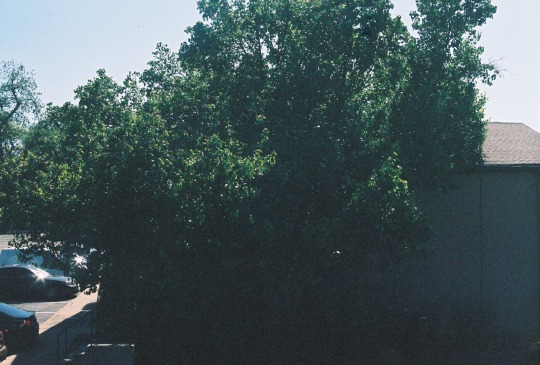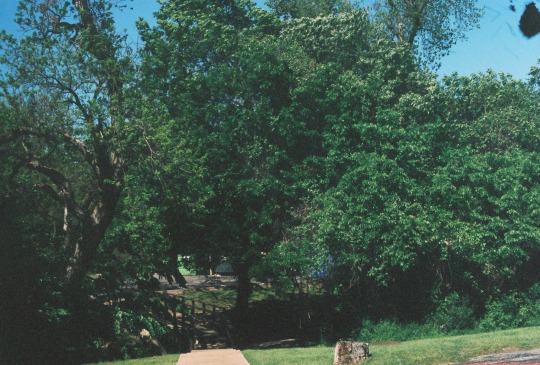Text
we stumble into reckonings with history carving inscenced rivers of blood through our frigid veins, expelled from the shelter of cracked pavilions into a storm without oases.
I was born into paradise. Four years the warmth of my nana's gaze holding his hand walking through the garden, my mother's eyes the camera lens witnessing the scene from the balcony. Her tone softens recalling those four years we lived off of for the next twenty five. Held in her arms in the garden her father and the mali worked with their own hands, the garden of the house he had built following his return to the city of our birth, Lahore and its vivid greens and commotion, the house in which my mother, her father, daughter, sister, brother, and son shared a few years. Together, in paradise.
Yes other things happen in paradise there are fears and anger and disappointment yet love and laughter and enjoyment persist and persist even across the ocean.
Yes there are varied occurrences, things happen and people leave and arrive and you are in tears and see your mother in tears and strength and solitude and commune, and a little more than four years have passed in that house and things have begun to unravel as they always have been unravelling and you cross the ocean away from your and your mother's father and your home and the city of your birth across the ocean to a different city, a different house, a different father, and the atmosphere is unlike what you have felt before. After a couple of years of this you see that a plane has flown into two towers and you see the strange land wherein you have found yourself raining hellfire upon people and a land that bear much greater resemblance to the people and land that you had left in Spring of 1999, the land in which you were born, the people among whom at that point you had spent the majority of your life, although with time that fact will erode, the land of your grandfather and your mother and her daughter and husband and sisters and brothers and their children and so many others. You listen to the hushed fear in adult voices, you sense that we are being lobotomised and that there are things we will lose our ability to say and that even our memories are crippling. You learn that in the country from which you were uprooted there are people who seek and uphold power who in their greed and cowardice conspire with the powerful in the imperial core in which you are now planted to destroy their own neighbors and ensure our own doom.
You return to the city of your birth and your mother and her father's birth into that house that was paradise knowing that two nations have been broken by the empire wherein you have been tasked with finding a different home, the empire built upon the graves of another colonised people, hunted to near extinction now sequestered in reservations, buried by the signature of the deed called property. An empire built and fed by and at the expense of people rendered property and brought in chains across the same Atlantic ocean that you once crossed. You see the misery and desperation and utter lack of enjoyment and sincerity consuming the lives and deaths of those subjected to and self-subjectivised through the regime of law and money, the misery that persists in commodified existence irrespective of the scale or value a given individual or family or people's collection of commodities.
It is impossible to shake the recognition that beneath all appearances, behind the real abstraction that is the dollar, behind the eyes of studiously silent faces, behind everything it is obvious that some deeply entrenched turbulence bursts at the seems, it is impossible that everyone does not feel and is not maddened by that which you feel and by which you are driven mad. It is impossible to ignore that your mother has no mother of her own present.
Baghdad has fallen when you return to your grandfather's house in Lahore for the second time since your initial departure, that same year your mother's sister had a baby and you and your sister and cousins and your mother and her sisters sing to that baby when she is too fussy to eat. Your grandfather shows you and your cousin his copy of The Silmarillion, pulled from his high bookshelves. You go out into the resplendent beauty of that city, you eat at bundu khan. You are overwhelmed by the profusion of color and pattern and texture dancing along store and sidestreet stalls covered in garments, layers and layers of intricately woven and decorated fabrics crafted by the hands of the people of that land, those strange people with their crinkled humour and shining eyes. The laughter and music of that city, the chorus of our crowds, street vendors, housewives, laborers, students, visitors, children like myself with their mothers and khalas, children unaccompanied beseeching our mothers and khalas for alms, offering for a pittance a balloon or a water pistol or a cup of sugarcane juice that you are told by those you are with that you can not drink because the water will make you sick it must be boiled or bottled for us to stomach. What you are not told but is made evident is that if it will make me sick it will and does also make the children on the other side of the car window sick and that those children likely can not afford bottled water nor energy to boil non-bottled water with the same ease as us. It is evident that something must have and still is going terrible wrong when the water from which life is produced and reproduced can not be stomached. It is evident that we are all dying of thirst.
As this second visitation is concluding, the night before you will leave you are playing with your cousins in your grandfather's house as your mother and her sisters and the neighbors are talking across the room you overhear that the rich will get richer and the poor will get poorer and you are struck dead. You may have heard this phrase before yet you are stricken. You leave and the entire passage away you are bawling, throughout the half day layover in petropolis across the ocean back to Texas you are in tears, bawling your heart out because you miss your cousins and your khalas, because you feel your mother weeping alongside you even as she does not shed a tear, weeping for the rupturous history that snatched you from the commotion and laughing pain of that city, away from your nana and his and your home. Bawling because the rich will get richer and the poor will get poorer and all will grow more miserable as we are entombed beneath our respective and shared collections of commodities. Bawling because you will be told again and again that this is the way it must be, bawling at the ease with which we lie to our children and ourselves. Bawling because you miss your nana and because you will not return to the land of his and your birth until time has passed and passed and all that remains are a few weeks to watch him die then wash and bury his body, not in the city of his and your birth, the city you still have not seen since that flight away in 2003, the city where it turns out, as you learned in 2018, that your mother's mother had been living this whole time.
A nine year old child bawled that entire flight back and for days after arriving back in Texas until his mother invited his cousins over to settle his shattered heart and his heart was settled as he laughed and played with his brothers and sister although as yet much remained unsettling.
Across the ocean there is a house that was my grandfather's house and a garden that was the garden in which my grandfather held my hand so many paradisaic mornings. Across the ocean there is a tree leaning over a small patch of earth into which you and your mother's sister's husband lowered your grandfather, surrounded by strangers, a sandstone hill overlooking. You could not tear yourself away that afternoon until your mother's cousin gently guided you back. Across the ocean, in an overlooked part of the city to which you still have not returned is a house and in that house lives the grandmother you have never met. You can not and will not return to any of these places because you have never left. You can not and will not return to any of these places because you were never there.
Across the ocean in an overlooked part of Dallas you are struck transfixed standing on a balcony with black thoughts and marijuana and Emily & Charlotte and trees and light and beauty encompassing all.
1 note
·
View note
Text


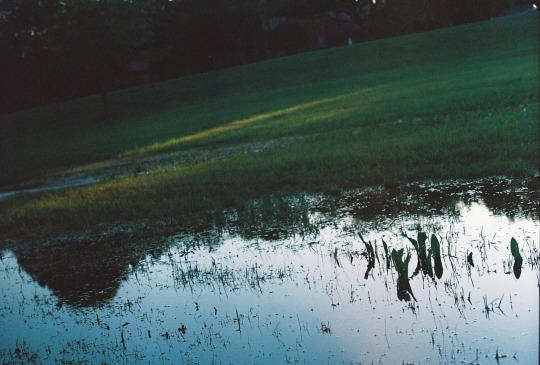





Back at my parents place roll, the middle few at the park in my uncle's neighborhood, walking with my cousin visiting from San Diego smoking dumped out cigarette joints and talking shit, reflecting on a history shared and individuatrd distinct yet recurrent, later we did the same back at my parents neighborhood creek walks with a one hitter smoking a couple of cigarettes sitting on a bench and looking st the trees and talking about our family, back at the house showing him pictures he'd never seen of our grandmother neither of us has met
2 notes
·
View notes
Text


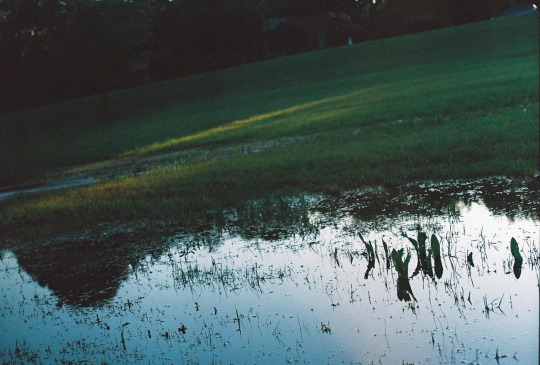
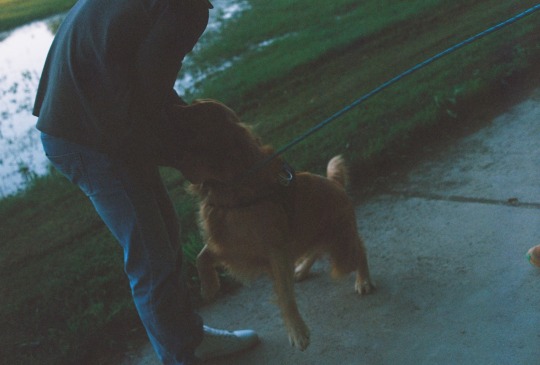


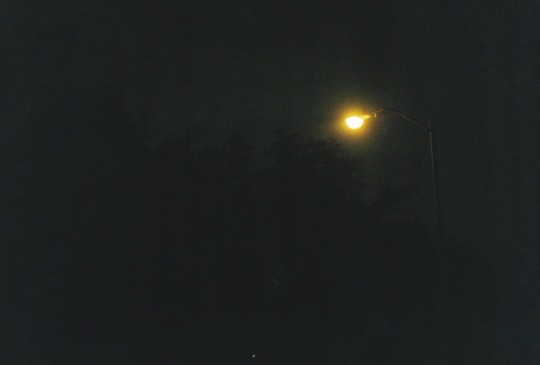

Back at my parents place roll, the middle few at the park in my uncle's neighborhood, walking with my cousin visiting from San Diego smoking dumped out cigarette joints and talking shit, reflecting on a history shared and individuatrd distinct yet recurrent, later we did the same back at my parents neighborhood creek walks with a one hitter smoking a couple of cigarettes sitting on a bench and looking st the trees and talking about our family, back at the house showing him pictures he'd never seen of our grandmother neither of us has met
3 notes
·
View notes
Text
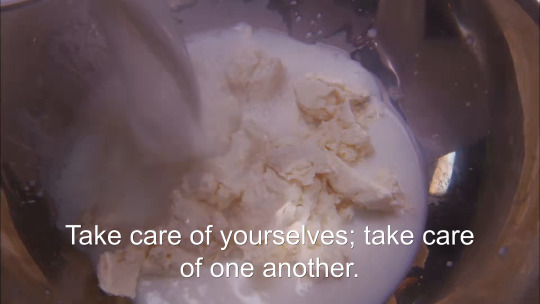
[Take care of yourselves; take care of one another.]
7 notes
·
View notes
Audio
Artist: Cocteau Twins
Track: Rilkean Heart
Album: Milk & Kisses
Year: 1996
574 notes
·
View notes
Text

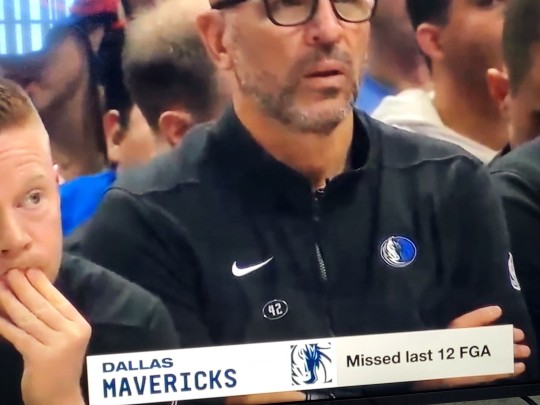
I was 16 during the mavericks one title run in 2011 and since that monkey got off my back thankfully when watching this sport the overwhelming draw for me is just like I want to see good games like I root for the dance between teammates and between teams to culminate in great basketball and past that I have a contingent interest in seeing certain players and certain squads do well but it's not really tied to the fate of a particular franchise like sometimes i have a matchup dependent rooting interest but nothing consistent for or against any individual team (except fuck the warriors). Like this abysmal first half of game 1 I'm kinda bummed cause I want Luka to stop having his ceiling limited by what until this season had been a consistently depressing lineup around him but also I love seeing Mark Cuban and Jason Kidd eat shit and I loveeeeee seeing James Harden cook whether it's against my supposed home team or anyone else at the end of the day it's about the joy of seeing hoopers hoop #ballislife
2 notes
·
View notes
Text
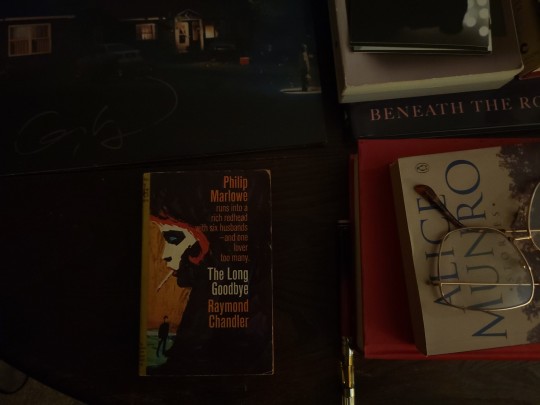
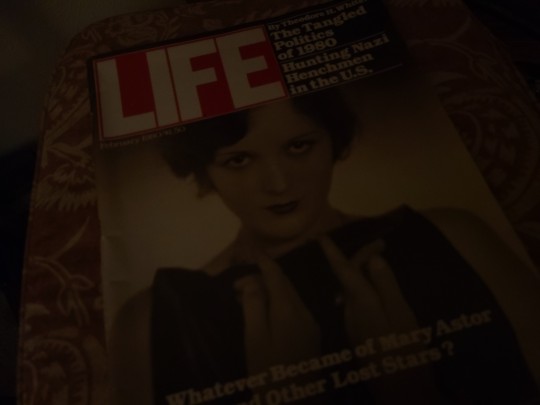
Last day hanging out at my apartment. My cousins were going to come over but scheduling complications led to me spending it here by myself, no cats as I dropped them off at my uncle's on Sunday. Temporarily, supposedly. They were really quiet. When I went to see them a few days later they were still really quiet. It all feels awful but I was looking forward to seeing everyone today I thought it would be cool for everyone to share the last day of the apartment as is together but things work out differently.
2 notes
·
View notes
Text




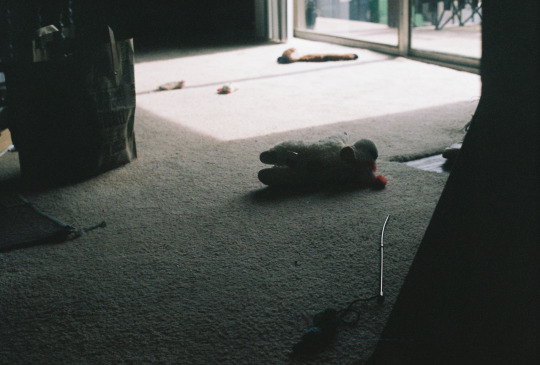
8 notes
·
View notes
Text
While the editors claim the historiography of Zionism, in reality theirs is a historiography for Zionism, a Zionist historiography seeking desperate renewal. In seeming response to Raz-Krakotzkin, the editors write in their introduction that in addition to Europe, Palestine and “in many other non-European spaces Zionist movements developed as well” (13). “Moreover,” they go on, “Zionists claimed a land outside of Europe not as a colony, but as their ancestral homeland” (13). While the latter part of that sentence is certainly true, and a core part of Zionist ideology, to argue that Zionists did not claim Palestine as a colony is a lie and nothing less. As is undoubtedly well-known to the editors, Zionists regularly and repeatedly referred to their efforts as a colonial project as countless historical studies have demonstrated, most recently Areej Sabbagh-Khoury’s meticulously researched and powerfully argued Colonizing Palestine: The Zionist Left and the Making of the Palestinian Nakba (2023). Moreover, the claim of Palestine as a homeland marked Zionism as more than simply another nationalism. In her review of The Holocaust and the Nakba: A New Grammar of Trauma and History (2018), Nadia Abu El-Haj carefully critiques the effort therein to define “the colonial” as “excess” and frame histories of Palestine and Israel in terms of competing nationalisms, without attention to the structure of settler-nationhood. “The distinction of Zionism,” Abu El-Haj makes clear, “is that it was a settler-nation from the very start: that is, it was a colonial project of settlement that imagined itself as a project of national return. Not only was there never any ideological space between the national and the settler-colonial. In contrast to settler-nations elsewhere (the US or Australia, for example), there was never any temporal distance either.”[6]
Every chapter in Unacknowledged Kinships seeks to eclipse the settler-colonial history of Zionism. A chapter by the historian Orit Bashkin, who has otherwise contributed to modern Arab intellectual history and the social history of Iraq and Israel in a series of well researched books, provides an overview of the recent scholarship on Arab Jewry. The chapter’s value, however, is diminished by an incoherent conclusion. “Finally, Zionism,” Bashkin writes, “was not simply a foreign movement imported from Europe and Palestine, as the postcolonial school would have it, or a natural response to Arab Fascism, as the conservatives have argued. Rather it was a local option, one among many, that appealed to Jews, especially as Arab national elites let them down and the conflict in Palestine seemed to have determined the lot of Jews outside it” (208). The conscription of some Arab Jews into Zionism does not make it local. Does the presence of American nationalism among some Indigenous or Black people make the United States any less a settler-colonial or slave society? Zionism was not “imported” from Palestine to elsewhere across the Arab world. The transplantation of a racial ideology that pitted “Arab” against “Jew” was a European Zionist project. All the major leaders of the Zionist movement in Palestine were European. Of the thirty-seven signatories of the Israeli Declaration of Independence, “all but two… were from Central or Eastern Europe,” as Ussama Makdisi reminds us.[7] To name Zionism “local” is to elide again, as this volume seeks to do, its colonial function.
...Quayson however, reveals himself a fellow traveler in the editors’ campaign, readily adopting their prejudice and the logic of the Israeli security state. In his Afterword to the volume, Quayson writes that the events at the 1972 Olympics in Munich were “stomach churning” as he observed them as a child in Ghana and that unlike “the foreign policy positions being taken by African states” the Israeli raid on Entebbe Airport in 1977 “served to consolidate the Israelis as heroes in our young eyes even further” (298). Quayson is certainly welcome to recount his youthful impressions (although readers may wish to consult proper histories of African and Third World solidarity with Palestinians in the same period to read alongside such anecdotes). But Quayson’s reliability is thrown into serious doubt when he turns to the 1982 massacres of Palestinians in the Beirut refugee camps of Sabra and Shatila. He characterizes them simply as a “public relations disaster” which “created a bitter taste toward Israel for many people in the postcolonial world” (299)—although apparently not for Quayson. While Israel’s complicity in the massacres is well-documented and well-known, Quayson seeks to absolve Israel by both raising doubts about these facts and justifying Israel’s actions due to the “complex geopolitical calculus” that Israel and its adjuncts in Lebanon were apparently working under, namely the perennial specter of Iran. Why? In the end Quayson makes clear his opposition to BDS, “something I personally think precipitously abandons the possibility of dialogue and collaboration with progressive Israel-based scholars” (299).
...Faisal Devji, in a piece that rehashes the arguments of some of his recent books on Pakistan and Gandhi, takes the opportunity to scold supporters of BDS with insidious comparisons. Arguing that “BDS has taken on the role that states and the international community are meant to play by imposing punitive sanctions on a criminal regime. This effort is inadvertently mitigated by the movement’s weakness and so its own vulnerability to sanctions of many kinds. Such vulnerability gives BDS its moral idealism, but this is promptly squandered by the desire to speak in the name or at least in place of the state and international order.”[12] Inexplicably, a stateless people, many of whom without even a passport to their name, endlessly abused by a state-system which restricts their movement and blocks their access to those legal mechanisms of international governance, are condemned for attempting even the smallest pragmatic use of that system. Shall we also condemn Six Nations of the Irouquis’s appeal for sovereignty to the League of Nations or the Civil Rights’ Congress historic charge of genocide against the United States presented to the United Nations in 1951?
Palestinians and their supporters, Devji goes on to argue, would do well to heed the example of the Gandhian refusals which mobilized millions against the British in India. No mention is made, of course, that Palestinians have been practicing civil disobedience in their land since before the State of Israel even existed. Or that the General Strike in Palestine in 1936 was the longest in human history (perhaps only surpassed by the hartal that consumed Kashmir in 2020). While Palestinians are daily arrested, maimed, and murdered for stepping out into the street or opening their lips, when dozens of Palestinians participate in wave after wave of hunger strike as they’re stuffed into cages, Devji, our Thomas Friedman, dares to ask where is the Palestinian Gandhi?
8 notes
·
View notes
Text
The ease with which the spigot of temporary labor can be adjusted has allowed states to fine-tune the flow of labor in, carefully calibrating the supply to ensure workers never gain too much power. In the mid-2000s, for example, the Emirati government’s concerns about the growing strength of economic and political claims by Indian workers—who by then had come to represent an overwhelming majority of the migrant workforce in the country, particularly in construction—resulted in new rules requiring employers to source their workforces from no fewer than three different countries. Not only has this allowed the UAE to play remittance-seeking, labor-sending countries off each other and diminish their efforts to protect their citizens’ rights abroad; it has also allowed employers to sow ethnonational divisions between migrant workers through differential wage rates and other tactics, preventing any single group of migrant workers with common cause from becoming a significant political bloc in the country.
...There have been some talks about whether to tentatively allow some Palestinian workers to return, some of them led by Israeli security officials concerned about the potential threat produced by large-scale unemployment in the Occupied Territories. But they have been met with opposition. The goal, said Idan Roll of the centrist Yesh Atid Party, should instead be to “wean the Israeli economy off Palestinian workers.” For both sides of the debate, the problem is essentially a matter of colonial strategy: either work permits will pacify the Palestinian population, or they will be too risky. Israel’s stopgap solution, importing less politically volatile Indian workers as a rapid-response labor force, draws from the two-hundred-year-old colonial logic of British indenture.
The Modi government wagers that the fate of the construction workers headed to Israel in the midst of a brutal war is of as little concern to the wider public as that of the Palestinian workers they are replacing. But India and Israel’s collusion has not come without significant resistance, despite unprecedented levels of repression. As the February blockade shows, progressive unions in India have made solidarity with Palestinian freedom a central pillar of their actions. Others have directly compared Israel’s contracting of Indian labor to the history of indenture. Organizing across the often chasmic gaps of nationality, race, caste, language, or religion is difficult—but by no means impossible. If modern states have ensured the brutal subjugation of both populations living, and workers laboring, in their borders through colonial means, then the resistance to those tactics must be anticolonial in response.
4 notes
·
View notes







